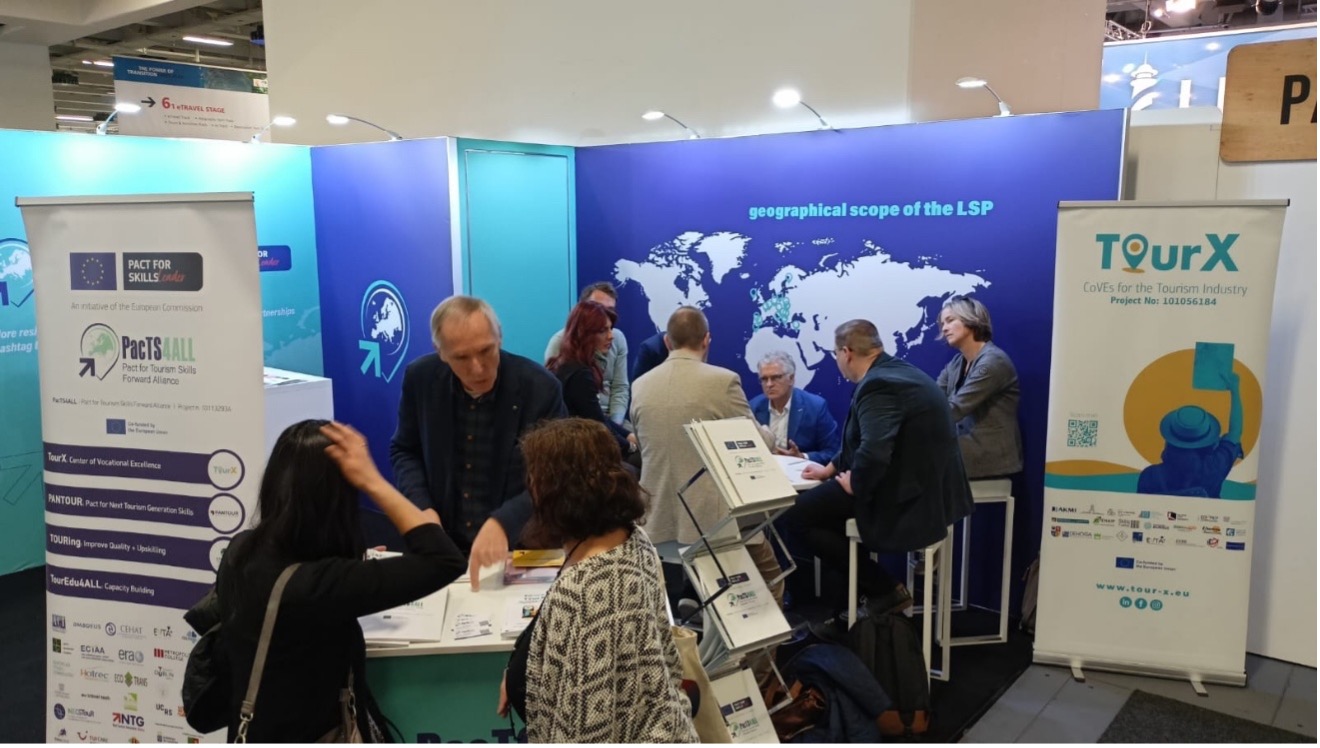Objectives
The Tourism LSP work and objectives are defined in a Baseline Document that provides a summary analysis of the situation and the main lines of action. It has set an ambitious goal: to upskill and reskill 60% of the tourism workforce by 2030. For this reason, it sets the vision of 12 objectives and indicators to be achieved by 2030 across Europe. These include:
Workforce Retention
and Attraction
Hands-on Training
and Learning
Skills Gap
Prevention
Specifically, the 12 objectives and indicators are as follows:
- Establish National/Regional Skills Groups in all tourism regions of Europe, involving all key stakeholders.
- Upskill and reskill 10% of the tourism workforce annually from 2022 to 2030, addressing current and future skills gaps.
- Ensure 100% awareness of upskilling/reskilling needs among workers and employers, and achieve 50% coverage of effective career guidance and support services.
- Engage workers and their representatives in designing, planning, implementing, and evaluating training initiatives.
- Expand blended learning models (e.g., apprenticeships, internships), especially for green and digital skills.
- Increase up/reskilling activities and participation by 40% for the employed workforce, and by 80% for unemployed until 2025.
- Raise the number of successful training certifications by 10% per year.
- Integrate informal and lifelong learning outcomes into formal qualifications.
- Achieve an average of 50 hours of training per participant per year.
- Update regional skills needs annually, and identify at least two new skills and three new occupational profiles each year for targeted training.
- Implement real-time skills gap detection through data-sharing systems.
- Upskill 20% more individuals from disadvantaged groups (compared to their share in the workforce) to promote inclusive labour market integration.


